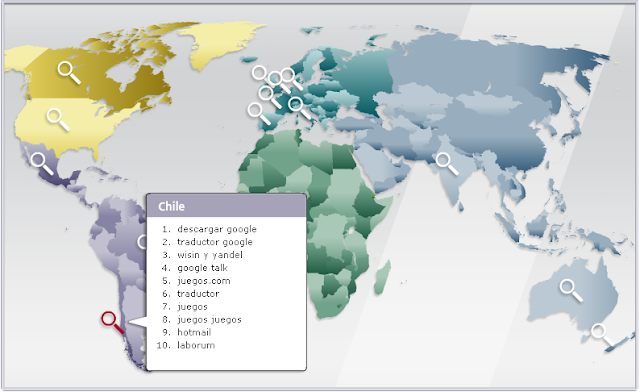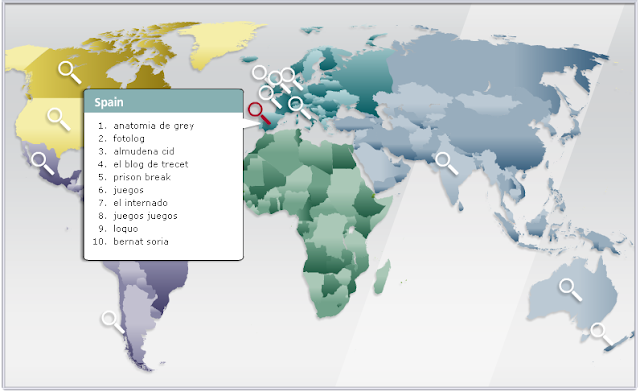From more than 2,600 popular keywords, the first five pages of results across each of five major search engines are examined. On average, each keyword generated a little more than 250 results. Each keyword a category and a country and then ranked them by the risk of their resulting URLs. In addition, using data from Hitwise, a search intelligence company conducted much deeper dives into specific keywords.
Keywords were ranked in two ways:
1) The average risk of all results and
2) The maximum risk of the riskiest page of results.
Keywords were ranked in two ways:
1) The average risk of all results and
2) The maximum risk of the riskiest page of results.
What Makes Certain Search Terms Risky?
Why are certain keywords or search terms riskier than others? While it’s not always possible to understand the minds and motivations of today’s sophisticated hackers. Hackers are most successful when they can attract a large number of victims. One way to target big crowds online is to track current events - everything from celebrity meltdowns and natural disasters to holidays and popular music.
One key tool cybercriminals use to snare victims is to get them to download a computer file or program that comes with a malicious payload.
With these two concepts in play, let’s take a look at one of our riskiest search terms: free music downloads. On average, 20.7% of results were risky (compared to just 1.7% of all search terms) and on one results page out of the 25 search engine pages rated, it is found a whopping 42.9% of results risky. As consumers continue to convert their music libraries to digital formats like MP3 files, many consumers have heard that the web can be a source for free music. If the consumer is already looking for music, then they already have the mindset of being willing to download something - and that makes the malware author’s work easier.
A website’s subject matter or type of content can also affect its riskiness. Two such examples are lesser known pornographic and gambling sites that can be used to host malicious software such as exploits, dialers, Trojans, and other malware. This type of content can lead consumers down the dark alleys of the Internet, and consumers expose themselves to more risk when they attempt to search for these terms.
When determining “market size” for their scams, cybercriminals may look at the total number of website links a search term yields. Googlebattle.com is a good tool for illustrating this. An Anti-Virus giant found “Brad Pitt” more dangerous to search for than “Hugh Jackman” (14.3% maximum risk to 9.1%). Similarly, Googlebattle produces 26.4 million hits for “Brad Pitt” and just 5.5 million for “Hugh Jackman.”
It’s important to note that the number of website links is just one factor a cybercriminal might use when weighing whether to target a keyword. For example, Googlebattle finds Olympics soccer has more links than Olympic swimming, but for U.S. audiences in particular, “Michael Phelps” was a more popular - and riskier - search term.
Similarly, spikes in news coverage can also drive even consistently popular keywords out of the “most risky zone.” For example, three popular female celebrities are Cameron Diaz (15.6% maximum risk), Angelina Jolie (8.3%) Oprah Winfrey (7%) and Beyonce Knowles (7%). But searches for Zuma Rossdale, the daughter of Gavin Rossdale and Gwen Stefani, can be as risky as 25%, suggesting that malicious or unscrupulous players do pay significant attention to news events.
One key tool cybercriminals use to snare victims is to get them to download a computer file or program that comes with a malicious payload.
With these two concepts in play, let’s take a look at one of our riskiest search terms: free music downloads. On average, 20.7% of results were risky (compared to just 1.7% of all search terms) and on one results page out of the 25 search engine pages rated, it is found a whopping 42.9% of results risky. As consumers continue to convert their music libraries to digital formats like MP3 files, many consumers have heard that the web can be a source for free music. If the consumer is already looking for music, then they already have the mindset of being willing to download something - and that makes the malware author’s work easier.
A website’s subject matter or type of content can also affect its riskiness. Two such examples are lesser known pornographic and gambling sites that can be used to host malicious software such as exploits, dialers, Trojans, and other malware. This type of content can lead consumers down the dark alleys of the Internet, and consumers expose themselves to more risk when they attempt to search for these terms.
When determining “market size” for their scams, cybercriminals may look at the total number of website links a search term yields. Googlebattle.com is a good tool for illustrating this. An Anti-Virus giant found “Brad Pitt” more dangerous to search for than “Hugh Jackman” (14.3% maximum risk to 9.1%). Similarly, Googlebattle produces 26.4 million hits for “Brad Pitt” and just 5.5 million for “Hugh Jackman.”
It’s important to note that the number of website links is just one factor a cybercriminal might use when weighing whether to target a keyword. For example, Googlebattle finds Olympics soccer has more links than Olympic swimming, but for U.S. audiences in particular, “Michael Phelps” was a more popular - and riskier - search term.
Similarly, spikes in news coverage can also drive even consistently popular keywords out of the “most risky zone.” For example, three popular female celebrities are Cameron Diaz (15.6% maximum risk), Angelina Jolie (8.3%) Oprah Winfrey (7%) and Beyonce Knowles (7%). But searches for Zuma Rossdale, the daughter of Gavin Rossdale and Gwen Stefani, can be as risky as 25%, suggesting that malicious or unscrupulous players do pay significant attention to news events.
Countrywise Dangerous Key Words…






































